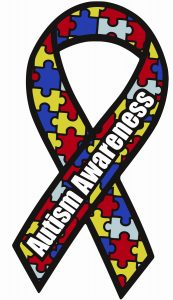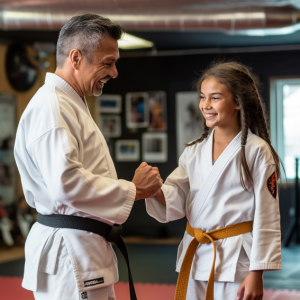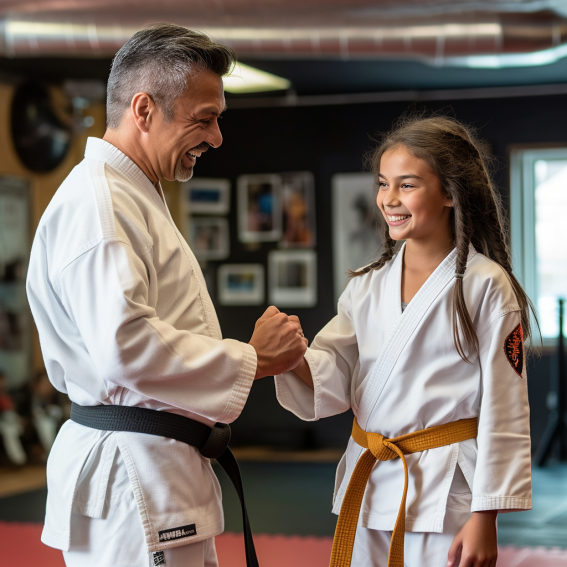 According to Autism Speaks (2022), approximately 1 in 44 children in the U.S. is diagnosed with an autism spectrum disorder annually. Out of these 44 children diagnosed, approximately 1 in 27 boys identified with autism, and 1 in 116 girls identified with autism (Autism Speaks, 2022). Over the next decade, an estimated 707,000 to 1,116,000 teens (70,700 to 111,600 each year) will enter adulthood and age out of school-based autism services (Autism Speaks, 2022).
According to Autism Speaks (2022), approximately 1 in 44 children in the U.S. is diagnosed with an autism spectrum disorder annually. Out of these 44 children diagnosed, approximately 1 in 27 boys identified with autism, and 1 in 116 girls identified with autism (Autism Speaks, 2022). Over the next decade, an estimated 707,000 to 1,116,000 teens (70,700 to 111,600 each year) will enter adulthood and age out of school-based autism services (Autism Speaks, 2022).
Specific challenges for children/teens within the autism spectrum can include the following:
- Nearly two-thirds of autistic children between the ages of 6 and 15 have been bullied.
- Nearly 28 percent of 8-year-olds with autism spectrum disorder have self-injurious behaviors. Head banging, arm biting, and skin scratching are among the most common.
- Attention Deficient Hyperactivity Disorder (ADHD) affects an estimated 30 to 61 percent of autistic children (Autism Speaks, 2022).
In addition, executive functioning abilities are often compromised among autistic children and teens. Executive functioning skills are crucial for higher-level cognitive abilities such as impulse control, emotion regulation, and problem-solving (Dolan, 2020).
As diagnoses of autism appear to be increasingly common, it is crucial to address strategies for supporting these children and teenagers in navigating societal challenges, personal obstacles, and ultimately equipping them with the skills to thrive as capable adults.
With the extensive physical and mental challenges that autistic children/teens experience, can the study of martial arts become beneficial for them?
 Why Martial Arts?
Why Martial Arts?
We know that martial arts is synonymous with the term “self-defense”, which can often seem a bit controversial when discussing the implications on individuals within the autism spectrum. However, research has recently found that studying martial arts is not only beneficial to individuals on the spectrum but is in fact recommended in some cases (Latrielle, 2021).
As mentioned previously, many autistic individuals struggle with ADHD, anxiety, and an inability to perceive physical injury/harm. The study of martial arts is built within the foundations of self-control, repetition, and structure which can directly address these challenges.
“When Blake was 14 we decided to get him started in martial arts, I wanted him to build his confidence, I wanted him to have some form of structure; it was one of the best choices I ever made”. (Blake’s Mom)
According to Latrielle (2021), “the inherent structure and repetition in martial arts can help reduce anxiety in kids as they focus on individual goals and develop movement skills such as balance, flexibility, and hand-eye coordination. As kids practice choreographed moves and interact with other people in a fun and safe environment, they also improve communication skills, concentration, spatial awareness, and self-control.”
We also know that often, individuals on the autism spectrum require this repetition and consistency to some degree in their personal day-to-day routines. The movements and routines found within martial arts provide a sense of predictability and stability, which can greatly benefit autistic individuals who thrive in structured learning. It’s also an effective way to teach focus and concentration in a comfortable and trusted environment.
However, it is also noted that often these individuals can become disenchanted because too much of their life is rooted within routines and specificities and can become frustrated and lash out (Zehr, 2019). Engaging in a martial arts program not only supplies an outlet for frustration and energy but also teaches how to manage those feelings in a productive, disciplined manner.
Individuals within the spectrum can also experience bullying and an inability to defend themselves in compromising situations. Using material learned within martial arts, they can not only mitigate these situations with skill-based knowledge, but also control their emotional/mental responses to diffuse and de-escalate an otherwise dangerous situation. These abilities not only benefit the student, but also allow them to gain the confidence and self-esteem they need to function.
 Why Achieve Martial Arts?
Why Achieve Martial Arts?
At Achieve Martial Arts, we are in a unique position that is unlike any other martial arts studio or organization. We offer an extensive training program: we integrate varied levels of classes that include fitness and skill development in an online learning environment where a student can hone these skills and practice on their own time.
This is especially beneficial to our students that experience mental/physical challenges such as autism because it offers the flexibility of at home instruction while maintaining the structure and predictability many individuals require.
Our curriculum is extensive: our martial arts library is full of hundreds of challenges based upon a combined 60+ years’ experience amongst our instructors. Our students have unlimited access to this information and can supplement their own martial arts journey with this material at their leisure.
Our instructors possess extensive experience training autistic individuals specifically as well as those who have other mental/physical challenges, and we know how to create a program that specifically accommodates each student. With our innovative centralized grading system, our students receive the personalized feedback necessary for progression and can engage in consistent communication with our instructors.
The flexibility we offer at Achieve Martial Arts is unparalleled, and perfect for those children and teens that are struggling especially due to mental/physical challenges.
At Achieve Martial Arts, our students are not just a number in our roster: we strive to maintain a personal dedication to each of their triumphs.
Through its unique combination of physical, mental, and emotional development, martial arts offers a holistic approach to support growth and well-being for children and teens on the autism spectrum. The structured nature of martial arts classes, along with the emphasis on discipline and self-control, helps develop focus, concentration, and improved social skills. Additionally, martial arts training fosters self-confidence and self-esteem, empowering autistic children to face challenges and overcome obstacles.
With its inclusive and supportive environment, martial arts not only enhances physical fitness but also promotes overall personal growth. By embracing martial arts as a therapeutic tool, we can unlock the full potential of autistic children and teens and enable them to reach their highest potential.
Contact us today and speak with one of our instructors who can tailor a program specifically to you or the needs of your child. We look forward to working with you!
References
Autism Speaks. (2022). Autism Statistics and Facts. Retrieved from https://www.autismspeaks.org/autism-statistics-asd
Dolan, E.W. (2020). Mixed Martial Arts Training Could Help Promote Executive Functioning in Children with Autism. Psypost. Retrieved from https://www.psypost.org/2020/03/mixed-martial-arts-training-could-help-promote-executive-functioning-in-children-with-autism-56258
Latrielle, C. (2021). How Martial Arts Can Have a Big Impact on Kids with Autism. Active for Life. Retrieved from https://activeforlife.com/martial-arts-kids-autism/
Zehr, E. P. (2019). Martial Arts and Executive Function on the Autism Spectrum. Psychology Today. Retrieved from https://www.psychologytoday.com/us/blog/black-belt-brain/201907/martial-arts-and-executive-function-the-autism-spectrum


